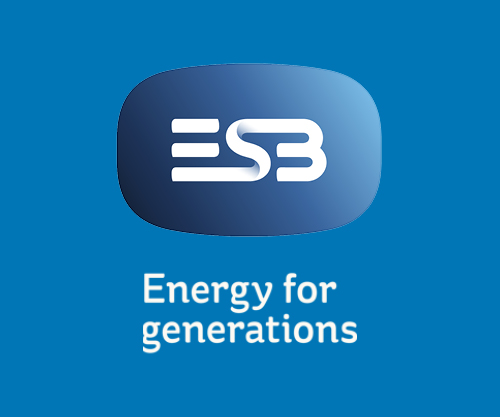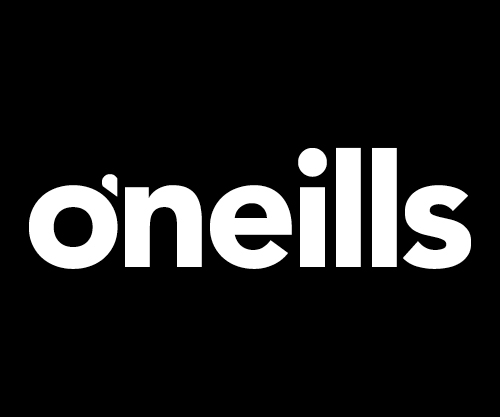Mental Fitness is just as Important
As a leading national sporting and community organisation, the GAA recognises that it can play a real and important role in supporting the emotional wellbeing of our members and communities.
We can do this by:
- Creating a culture and providing activities that support healthy bodies, healthy minds, and healthy clubs
- Helping end the stigma that prevents many people from accessing the help they so badly need when in times of distress
- Developing resources and tools that help our members better understand the building blocks of positive mental and emotional health
- Develop partnerships with organisations and charities such as the HSE, the PHA, Samaritans and Pieta House that we can signpost and direct our members towards in times of need
GAA Mental Health charter
The GAA’s Mental Health charter is a policy document that helps clubs develop a culture that supports and promotes emotional wellbeing. The resource is designed to reinforce the GAA’s GIVE RESPECT GET RESPECT initiative’s positive message and transfer it into the world of mental wellbeing. Available to download via this link, it outlines a club culture that is inclusive and open and one that holds dear the following values. Make sure your club adopts the charter today – just download the pack from the link above and contact the Community & Health team community.health@gaa.ie for supporting posters to highlight your good work.
Mental Fitness packs
The GAA’s ‘Play in my Boots’ packs aim to de-stigmatise mental health by speaking to players in a sporting language familiar to them. Using the term ‘mental fitness’ to emphasise the positive nature of our emotional wellbeing, the packs also aim to remind the GAA population that maintaining mental fitness requires work and skill development in the same way as maintaining our physical fitness does.
These packs, developed in consultation with St. Patrick’s Foundation, Dublin, are designed especially for players from 12+ and coaches and contain useful information which can help us all work through the stresses we all experience, or maybe help someone else work through theirs. Download an e-version of the pack HERE

Healthy Eating in the GAA
It is hard to ignore the growing trend of ‘clean’ healthy eating that is sweeping Irish shores, unless you have been living under a rock. It can be overwhelming and confusing for people to know what to eat with the abundance of mixed messaging in the media and social media. The GAA are firm advocates for a healthy, well – balanced and sensible diet.
Balance, flexibility, variation and experimenting are key to building healthy eating habits and a healthy relationship with food. Food is fuel and should be enjoyable. There is no such thing as “good” foods or “bad” foods – balance is key!
Healthy Eating Guidelines (Republic of Ireland) and The Eat Well Plate (Northern Ireland) can be downloaded here to guide individuals on the most recent, evidence- based recommendations.
In addition, the GAA have developed a fantastic resource, Recipes for Success booklet, aimed at young GAA players who want to maximise their performance by fuelling their bodies with real food adequately.
The benefits of a well- balanced diet are both physical and emotional:
*Optimise energy levels – *
It is recommended to eat regularly throughout the day, up to 5- 6 times daily. This maintains your energy levels and blood sugar levels throughout the day, preventing the 3pm slump. Nobody likes turning grumpy at this time in the afternoon, so prevent this from happening by incorporating more complex carbohydrates (like wholegrains), foods that release a steady stream of glucose into your system, and limit refined or processed carbs that are likely to rapidly spike your glucose and then send it plummeting. Unfortunately, food is sometimes seen ‘as a gap filler’ to grab and go until the next lull in energy levels. This is no way to treat the engine of a young person tackling and achieving ground breaking work, social and training goals daily. To maintain energy levels throughout the day, eat smart, eat often and hydrate.
Brain health –
A healthy balanced diet does great things for your brain and can ensure concentration levels are high and maintained throughout the day. Processed foods will impair concentration and will cause ups and downs in energy levels. Omega 3 fatty acids, especially the type found in fatty fish and egg yolks are the most important for brain health, as 60% of your brain is composed of fat. A recent study found a significant increase in memory recall in older healthy people supplementing with omega 3 acids after a 6 month period compared to those using a placebo. A 2010 study found that people who ate food high in omega 3 acids had an approximate 40% lower risk of developing Alzheimer’s compared to people who did not. Enjoy an egg for breakfast and sardines for lunch to boost daily brain power!
*General health – *
By eating a well balanced and varied diet you will obtain all the nutrients needed for a strong immune system, growth and repair, helping you to stay strong and healthy and preventing diet- related illness such as Type 2 Diabetes, high blood pressure, heart disease, skeletal conditions and some cancers.
Incorporating more healthy fats (from extra-virgin olive oil, avocado, tree nuts, and wild fish like tuna, sardines, salmon and mackeral) and certain spices (turmeric, cloves, ginger and rosemary and cinnamon) can help to reduce inflammation in the body. This is beneficial to prevent or help repair swelling of the joints, bloating, aches and pains and other consequences of inflammation.
*Strong bones and teeth – *
A diet rich in calcium keeps your teeth and bones strong and can help to slow bone loss (osteoporosis) associated with getting older.
Calcium is usually associated with dairy products, but you can also get calcium by eating:
- sardines, pilchards or tinned salmon (with bones)
- dark green vegetables – such as kale and broccoli
- calcium-fortified foods – such as soya products, fruit juices and cereals
As vitamin D helps your body absorb calcium, make sure you get outside (your body gets vitamin D from the sun) and have plenty of foods containing vitamin D in your diet – such as oily fish and fortified cereals.
*Prevent ageing – *
To maintain those Irish good looks and defy the aging process, there are a number of foods to include in your shopping basket to help achieve just that. Blueberries are high in antioxidants which protect against skin damage from sun exposure and stress. Avocados are rich in Vitamin E essential for shiny hair and glowing skin. Foods high in fibre, such as broccoli and flaxseed, help maintain a healthy weight while also providing nutrients to help the skin retain is moisture and elasticity. The flavonoids in dark chocolate not only protect against ageing but have also been found to have particular benefits in maintaining a healthy heart.
Feel good –
Opting for a balanced, adequate and varied diet is an important step towards a happy and healthy lifestyle. Healthy eating is a good opportunity to enrich life by experimenting with different foods from different cultures, origins and with different ways to prepare food. Food is fuel and should be an enjoyable part of our lives.
Slow down when eating meals and be mindful of the 3Ts- Texture, Taste and Time. When you eat quickly, the body doesn’t get a chance to signal to the brain that you are getting full. Receptors in the stomach that respond to being stretched by food, and the hormones that signal to the brain that partially digested food has made it to the small intestine, can take 15 to 20 minutes to kick in. Focusing on the 3Ts is a useful way to slow down and enjoy your food more.
See The Eat Well Guide – https://www.gaa.ie/api/pdfs/image/upload/ojyqjv41ty11xllrcqim.pdf
See Healthy Food for life – https://www.gaa.ie/api/pdfs/image/upload/n4r0tferxrepcbst6ii1.pdf
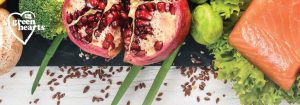
Show your Heart some Love!!!
Take the Green Hearts Challenge today: Choose one or more heart-healthy habits to incorporate into your daily routine. You can use the Green Hearts tracker (pages 6 and 7 on the Challenge document below) to help keep you on track. Committing to something for 30 consecutive days helps us form a new habit, habits are important because they are what add up over time to produce our results in life, the more positive our habits are, the more positive our results will be.
Irish in Britain’s #GreenHearts 
 campaign developed in response to high cardio–related mortality rates experienced by Irish people in Britain. Now Green Hearts also addresses #mentalhealth issues & stigma around them with @TirChonailGaels Find out more https://www.irishinbritain.org/what-we-do/our-campaigns/green-hearts-mental-health …
campaign developed in response to high cardio–related mortality rates experienced by Irish people in Britain. Now Green Hearts also addresses #mentalhealth issues & stigma around them with @TirChonailGaels Find out more https://www.irishinbritain.org/what-we-do/our-campaigns/green-hearts-mental-health …
Gambling, Alcohol, Drug & Tobacco Education in the GAA
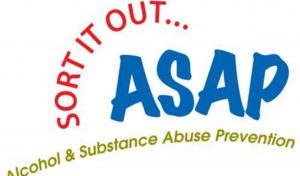
The Alcohol & Substance Abuse Prevention (ASAP) Programme was the GAA’s first foray into more formal health promotion. A joint venture with the Health Service Executive (HSE) the ASAP programme was introduced in 2006 at a time when Ireland’s alcohol consumption was at an all-time high (peaking at over 14 litres of pure alcohol per person ages 15+).
The ASAP programme today includes tobacco education reflecting the desire by many GAA clubs to become completely smoke-free campuses (inspired by the examples of pioneering clubs in the GAA Healthy Club Project).
Find out more on the GAA Website.


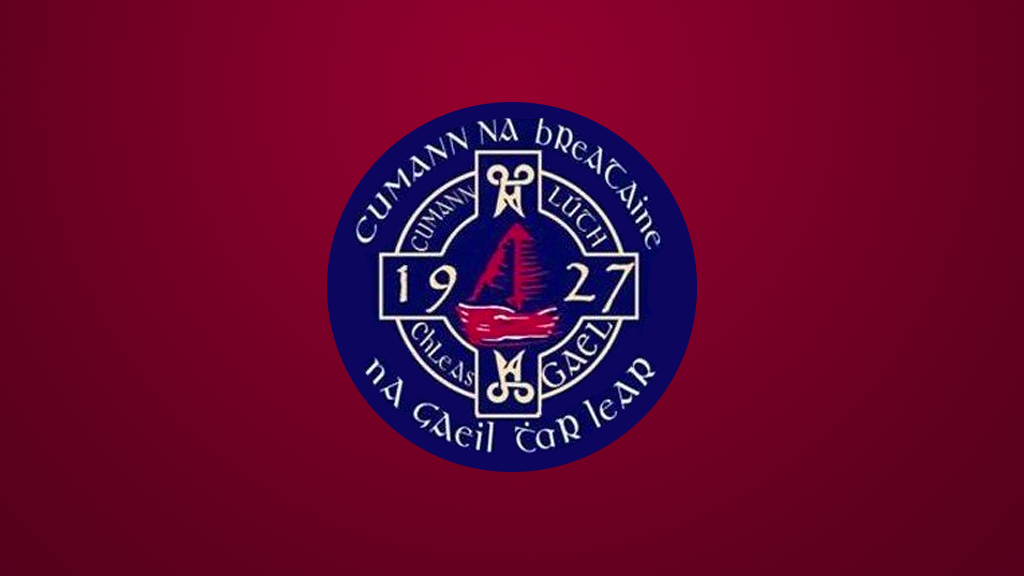 Green Hearts Brochure
Green Hearts Brochure
